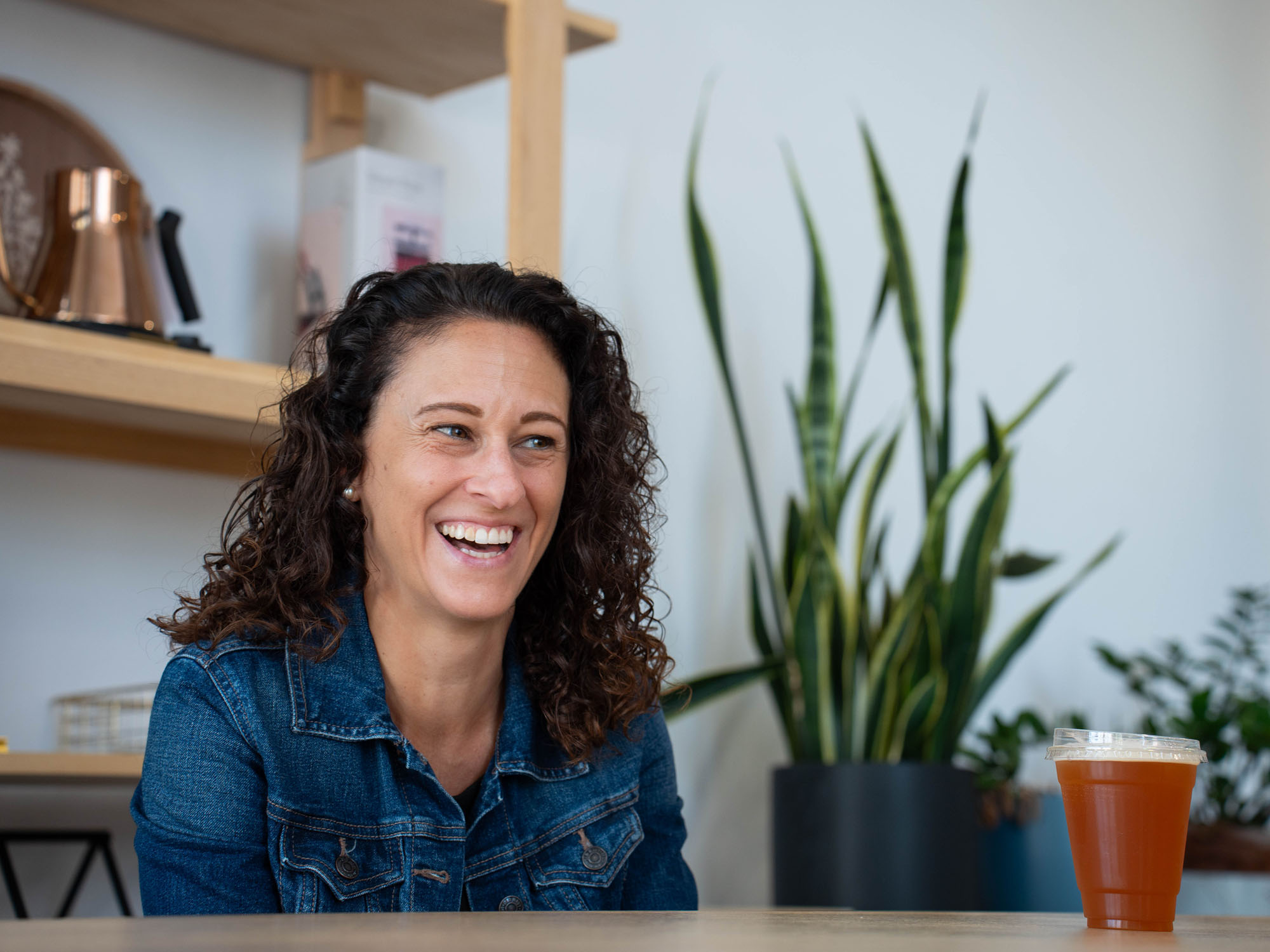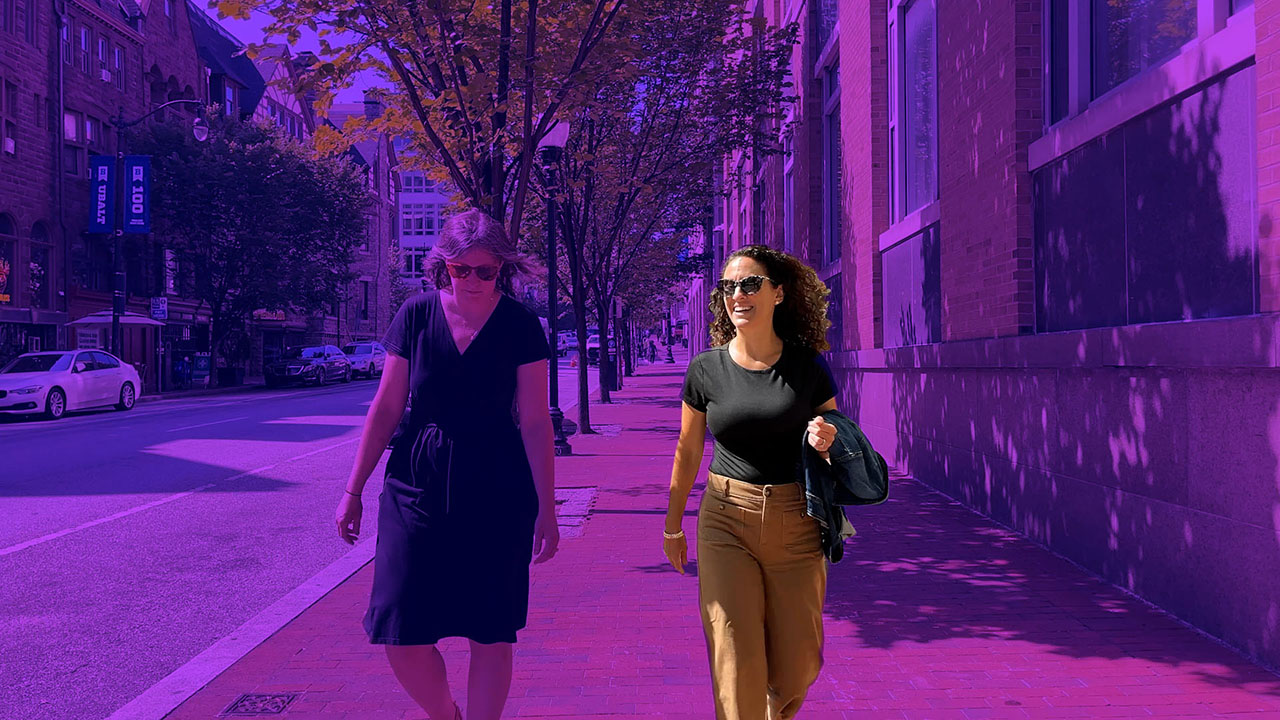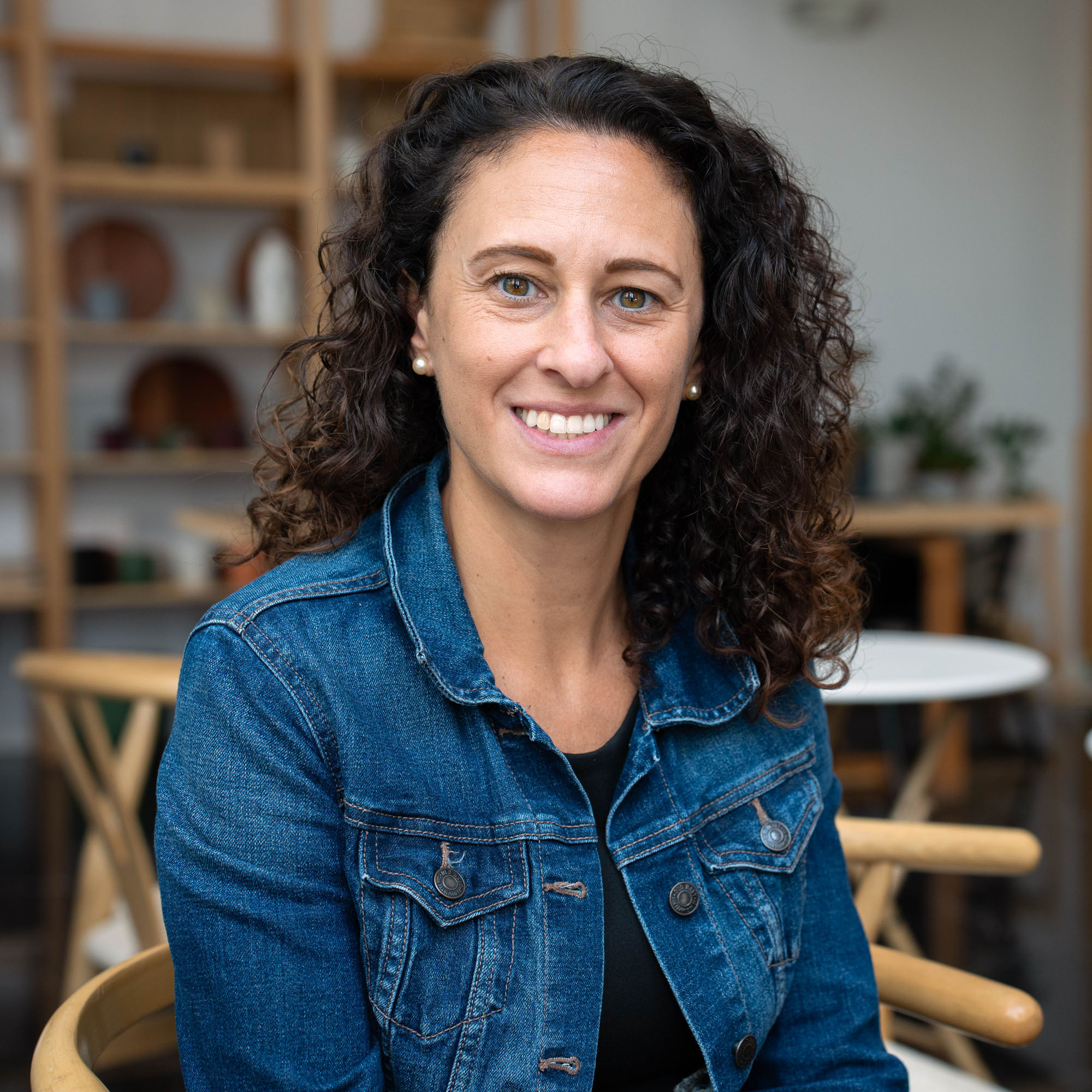
Since coming to The University of Baltimore in 2012, Dr. Andrea Cantora has made enviable strides building a program that helps redefine the value of higher education and its impact on a community.
Cantora, associate professor of criminal justice, is director of the University’s Second Chance College Program. The unique program invites qualifying incarcerated students at Jessup Correctional Institute to take courses for credit before their release and then welcomes them to the greater campus to finish work toward a bachelor’s degree in Human Services Administration.
Since starting in 2016, 17 students have graduated through the program and gone on to start nonprofits, work full-time, and pursue further educational opportunities, all while supporting the community behind them. And this May, the program celebrated its first master’s degree recipient.
Cantora, long an advocate for prison education, has become a go-to expert for building more such partnerships. We sat down over iced teas and coffees to talk about how she got into her line of work, what she’s researching now and some of the biggest misconceptions about educational opportunities in the prison system.
Q: What initially inspired you to pursue a career in criminal justice?
A: I started getting interested in criminal justice right around the end of high school/beginning of college when there were several school shootings happening across the country—Columbine being the one that most people can recall. It really bothered me, and I wanted to understand why and how something like that could happen. I double majored in criminal justice and psychology to study the causes of juvenile crime and specifically serious violent crime. From there, I just had other interests develop as I went on to grad school.
I started at a community college. I'm a first-generation college student, so that made the most sense for me and my family at the time. Once I got my associate degree, I went to Seton Hall University in New Jersey, and I just fell in love with the criminal justice field. I participated in a lot of service-learning projects. I was going in and out of juvenile facilities by the time I was 19. I really just had this interest in learning every aspect of the field. I also fell in love with research when I was a senior in my undergraduate studies, and that made me want to go on to grad school. Then I continued with my PhD.


Q: What's an overlooked area of research in your field that you'd like to explore further?
A: I'm on sabbatical right now and I've been doing research since January. One area that's been under studied is faculty and staff attitudes toward students with criminal records. There are only two researchers who have done work in that area about faculty and staff perceptions of the population, and my colleague and me asked for permission to use their survey so we could do our own study, replicating what they did but in different states. We are just at the end of our data collection, and we're analyzing results. It's been really fascinating, because a lot of my work is around making opportunities available for those with criminal records, and a lot of the barriers have to do with campus policies or perceptions of the population in terms of creating welcoming spaces for them to feel like they're part of a community. I'm excited that my practical work is connected to this new area of research that I'm exploring.
Q: The Pell Grant funding that helped make the second chance college program possible has come under threat. How do you protect an increasingly valuable but constantly vulnerable program when the dollars that make it possible are on the line?
A: I feel like we, the University of Baltimore, but also the state of Maryland, are moving in the right direction on this topic. Over the past three years, there's been an increasing interest and support from Gov. Moore's administration around prison education. There was legislation passed a year ago to create a prison education delivery reform commission and Gov. Moore appointed stakeholders around the state to be on this commission, me included, which I'm really excited about. We've been working toward expanding opportunities and improving prison education for the state of Maryland. Inside the correctional facilities that the state runs, there's the support at his level, which is really essential. Even if federal funding becomes an issue, I feel like the state is now in a place where they support this kind of work, and perhaps there can be more statewide efforts around helping finance it. That's the goal of some of the work of the commission.
Also, the chancellor of University System of Maryland, Jay Perman, has been really interested in this work as well. Over the past few years, he's brought together stakeholders from around the state, from all the different USM institutions in an effort to expand prison education for the state. The leadership and the support from leadership is there, which I think puts us in a good position to deal with some of these challenges that we're facing.
I'm really proud of the work that I've done, and that the University of Baltimore has supported from the very beginning. I think that's really key. I couldn't have done any of this without the support from the president, provost, the deans; everyone on campus has been incredibly supportive, and that support grows stronger every year. The more people that go in and teach, the more students that graduate, all of that collectively leads to the chancellor and the governor being interested in this work, because they see the success. They see students graduating, and that has really kind of brought awareness to the importance of this issue.
Q: What's a moment in your higher education career that brings you the most pride?
A: Every single graduation is that moment that makes everything we're doing worth it. When we see students who started or even finished their education, their bachelor's degree inside prison where they started, and perhaps they came to campus and finished up, just knowing that they've all started in this place that's incredibly traumatic and difficult to concentrate and study, and their resources are very different from what our traditional students on campus receive, knowing their struggle and the achievement at the end, it's not one moment, it’s every single moment. When that happens, it makes all this work worth it.

WHAT CHARMS US
Baltimore is incredibly accessible. I love how you can ride your bike or run from north Baltimore all the way down to Federal Hill in just a few hours and explore many neighborhoods during that time.

